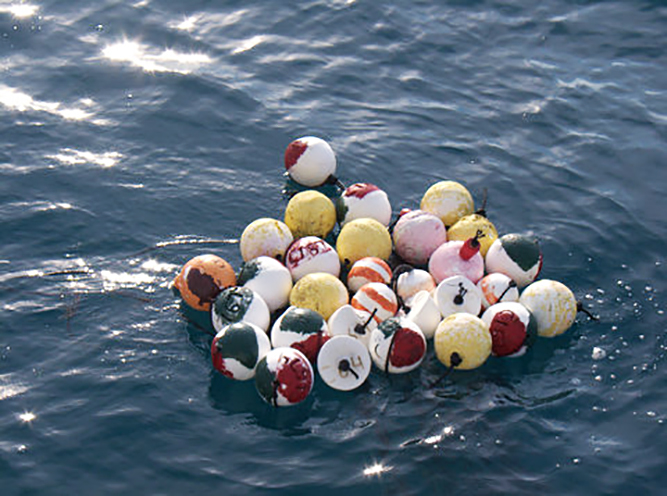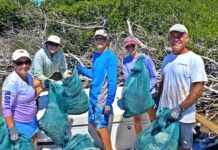
Twenty-one months after Hurricane Irma, the funds are in place to begin restoring the losses of commercial fishermen in the Keys. The Florida Wildlife Commission has $44.6 million that will be available for marine fisheries assistance. The first step, according to the state agency, is for commercial fishermen to register in two places:
• To be eligible to receive a payment under this program, fishermen must be a registered vendor in the state’s purchasing program. File an active W-9 at flvendor.myfloridacfo.com
• Second, login to the FWC’s commercial licensing system (search “FWC CSL online”) to verify or update address, phone number and e-mail.
Commercial fishermen — from coastal counties in Florida from Dixie County to Monroe County on the west coast and Nassau County to Miami-Dade County on the east coast — are urged to complete these steps by July 10, 2019.
“These funds are desperately needed. The fishermen of the Keys were hard hit by Hurricane Irma,” said Bill Kelly, head of the Florida Keys Commercial Fishermen Association.
According to officials, the first to be assisted will be lobster trap certificate holders who lost gear in the storm. Kelly served on the board with state officials as well as Jerry Sansom, the mainland executive director of the Organized Fishermen of Florida, and Bob Jones of the Southeast Fisheries Association.
“The lost gear is fairly easy to compute,” Kelly said. According to estimates, there are 465,000 lobster traps in Florida, and about 350,000 of those are fished in Monroe County or adjacent waters. Kelly said he estimates about 160,000 traps were lost. Although it depends on how many trap certificate holders apply for assistance, Kelly said they would be paid about $8 or $8.50 per trap. (A new trap costs about $40 for trap, line and buoy.)
The $44.6 million has been divided into categories:
• $13.8 million for commercial fishermen with saltwater product licenses.
• $12.9 million for wholesale dealers and fish houses.
• $3.1 million for cleanups.
• $14.8 million for charter fishermen, repairs to public boat ramps, fishing piers, etc.
The funds for the charter fishermen are a welcome addition, as early incarnations of the spending plan did not include them.
Greg Eklund, president of the Islamorada Charter Boat Association, said that’s good news.
“This is good for everybody’s business that survived the aftermath of Hurricane Irma,” he said. “This allows the members of the association to recover. Post-storm, we gathered funds among ourselves to keep a few of the guys in business.”
Capt. Bryce Barr of the Double Down Charters in Key West said he heard of the program months ago, but nothing since. He, too, said it is welcome news.
After the gear replacement part of the program is launched, the next group to be addressed will be the spiny lobster fishermen and fin fishermen. Refunds for commercial fishermen will be based on comparisons of reported landings pre- and post-storm, as recorded in the FWC’s trip ticket system.
“Starting in the beginning of July, (fishermen) will start receiving additional letters and emails to explain each program area and how payments will be calculated. To ensure that assistance will be provided, and a payment can be made, make sure to complete the steps above,” wrote FWC’s Dan Ellinor, of Marine Fisheries Management in an email sent to Keys fishermen. He also said available government funds are limited and that the Fisheries Disaster Relief Program may not be able to cover fishermen fully for their losses.
Programs for fish houses and wholesale dealers, as well as the charter captains, will be the last to roll out.
“These are some general guidelines and there will most likely be minor changes as the process unfolds. Each FWC posting will have a complete set of instructions for fishermen to follow,” said Kelly. “In order to eliminate mounds of paperwork and claims that would take years to review, FWC is streamlining the process by computer analyses. Fishermen should be certain to develop a W-9 for each and every saltwater product license they hold.”






















